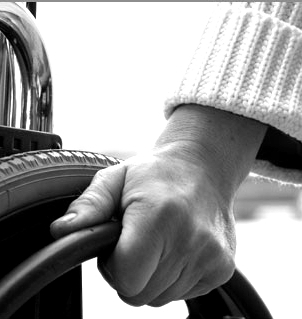Warnings raised on NDIS re-jig
 Health advocates say the Government should not sell welfare short to fund the National Disability Insurance Scheme.
Health advocates say the Government should not sell welfare short to fund the National Disability Insurance Scheme.
Several groups have welcomed the Government’s overarching commitment to fund the NDIS into the future, but strongly reject budget measures linking the fully-funded NDIS with cuts to welfare spending.
The 2016 Budget proposes the creation of an NDIS Savings Fund, which would accrue $2.1 billion by 2020. That money would be “quarantined” to cover a looming funding shortfall of at least $5 billion a year by 2020.
The fund will be filled with money from “efficiencies” including a review of 90,000 recipients of the Disability Support Pension (DSP) over three years.
If the budget measures pass, DSP recipients will be subjected to medical assessments to judge their capacity to work.
“The message is ... that somehow people with disability are ripping the taxpayer off,” says Marija Groen, co-chairperson of Women with Disability Victoria.
“The Government will make it so hard for people to get on the DSP it will assist in building a larger lower class.”
“We have always welcomed a discussion about funding the NDIS so it is sustainable into the future and to ensure it is taken out of the budget cycle,” said PWDA chief Craig Wallace.
“However, the NDIS Savings Fund announcements risk moving the NDIS further into the budget cycle by creating an expectation that the NDIS will be funded from ongoing trade-offs against other equally important human services expenditures.
“If there is to be a savings fund, it should not be a device to make savings, and poor trade-offs between programs and services supporting and sustaining vulnerable members of our community.
“We note the Government’s decision to subject another 30,000 Disability Support Pensioners each year to annual reviews however it is unclear to us how these people will be selected and where the employment opportunities will come from.
In the absence of jobs, cutting people off the Disability Support Pension (DSP) and placing them on Newstart will leave some people with disability over $170 per week worse off.
“This will leave people with disability at risk of spiralling into crisis and homelessness and in greater need of the kind of specialist disability supports the NDIS provides.
“We should not be making trade-offs and false economies between specialist disability support and income support,” Mr Wallace said.
“This is robbing Peter to pay Paul.”








 Print
Print